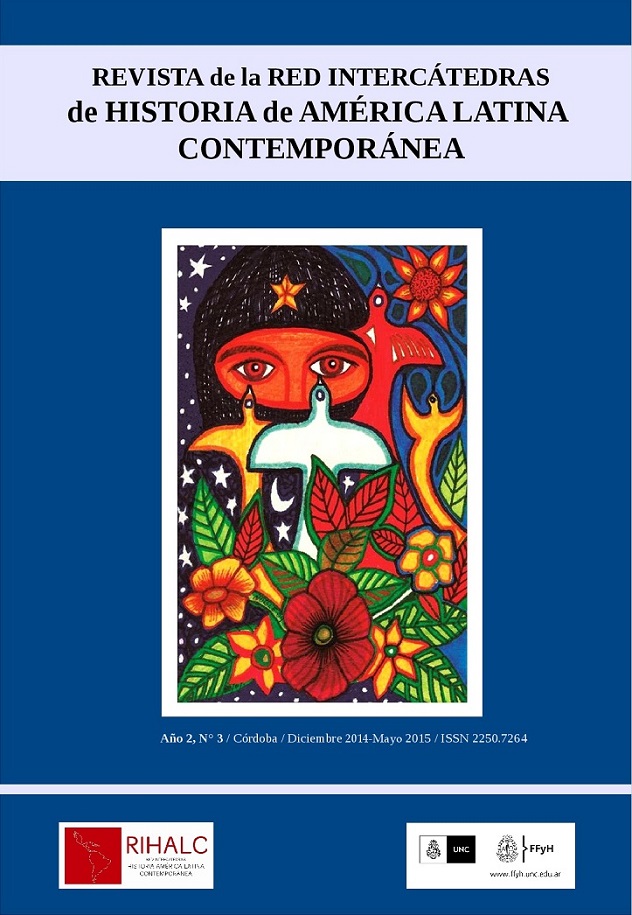The MST of Brazil and the construction of a self-managed educational system
Keywords:
new social movements, popular education, self-managementAbstract
The Landless Workers Movement (MST, for its acronym in Portuguese) in Brazil is one of the paradigmatic cases of the New Social Movements. One of its features was that its organizational structure has not been limited to the struggle for land for the peasants, but has also expanded to other areas, of which we are particularly interested in education. In this regard, it is noteworthy that the MST was a pioneer in creating their own educational system that will attempt to answer the needs of its members. This involved the creation of self-managed schools that, following the pedagogical lines of authors like Paulo Freire or Moisey Pistrak, tried to be part of the transformation of the lives of peasants in Brazil.
This article explores the history of the MST as an organization and the way in which the creation of the Education Sector, the space within the organization that is responsible for the educational tasks, was decided, and then review of some of the general characteristics of these self-managed schools and its most visible pedagogical influences. In this sense, this work aims to contribute to the study of the New Latin American Social Movements and the way they try to solve the problems they face in their struggle for the transformation of the lives of the masses.
References
Caldart, Roseli Salete (2004): Pedagogia do Movimento Sem Terra, Editora Expressa?o Popular, San Pablo.
Dal Ri, Neusa Maria y Giraldez Vieitez, Candido (2008): Educac?a?o democrática e trabalho asociado no Movimento dos Trabalhadores Rurais Sem Terra e nas fábricas de autogesta?o, Ícone, San Pablo.
De Sousa Santos, Boaventura (2001): Los Nuevos Movimientos Sociales [en línea], en Observatorio Social de América Latina N°5, CLACSO, puesto en línea en septiembre de 2001, consultado el 15 de febrero de 2015. URL: http://bibliotecavirtual.clacso.org.ar/ar/libros/osal/osal5/debates.pdf.
Gonçalves Pereira, Ireneu (2003): “Escola de Ensino Fundamental Assentamento Unia?o: origen, trajetória e aspectos pedagógicos”, en Cuadernos do ITERRA: Alternativas de escolarizaça?o dos adolescentes em assentamentos e acampamentos do MST, Noviembre 2003 (Año III), nº 8, pp 61-95.
Harnecker, Marta (2002): Sin tierra. Construyendo movimiento social, Siglo XXI Editores, Madrid.
Martins, Fernando (2004): Gesta?o democra?tica e ocupac?a?o da escola: o MST e a educac?a?o. EST Edic?o?es, Porto Alegre.
Martins, Fernando (2013): “MST, Pistrak y la Escuela del Trabajo”, en Encuentro de saberes, Marzo 2013, nº 2, pp 6-11.
Michi, Norma (2008): “Una mirada sobre el Movimiento Dos Trabalhadores Rurais Sem Terra (MST) y la educación”, en Roberto Elisalde y Marina Ampudia, compiladores, Movimientos sociales y
educación: Teoría es historia de la educación popular en Argentina y América Latina, Buenos Libros, Buenos Aires, pp 37-63.
Michi, Norma (2010): Movimientos campesinos y educación. El Movimiento de los Trabajadores Rurales Sin Tierra y el Movimiento Campesino de Santiago del Estero – VC, Editorial El Colectivo, Buenos Aires.
Shabel, Paula (2013): “Niñez y Revolución. Reseña del libro ‘Fundamentos de la escuela del trabajo’, de W. Pistrak, Expresssao Popular, 2000”, en Encuentro de saberes, Octubre 2013, nº 3, pp 91-93.
Zibechi, Raúl (2000): La mirada horizontal, Abya-Yala Editing, Quito.
Zibechi, Raúl (2008): Territorios en resistencia. Cartografía política de las periferias urbanas latinoamericanas, La Vaca Editora, Buenos Aires.
Downloads
Published
Issue
Section
License
Aquellos autores/as que tengan publicaciones con esta revista, aceptan los términos siguientes:
- Los autores/as conservarán sus derechos de autor y garantizarán a la revista el derecho de primera publicación de su obra, el cuál estará simultáneamente sujeto a la Licencia de reconocimiento de Creative Commons que permite la libre distribución con mención de su(s) creadores, no permite el uso comercial ni las obras derivadas. Los autores, al enviar el artículo, acuerdan publicarlo bajo esta licencia..
- Los autores/as podrán adoptar otros acuerdos de licencia no exclusiva de distribución de la versión de la obra publicada (p. ej.: depositarla en un archivo telemático institucional o publicarla en un volumen monográfico) siempre que se indique la publicación inicial en esta revista.
- Se permite y recomienda a los autores/as difundir su obra a través de Internet (p. ej.: en archivos telemáticos institucionales o en su página web) después del proceso de publicación.



